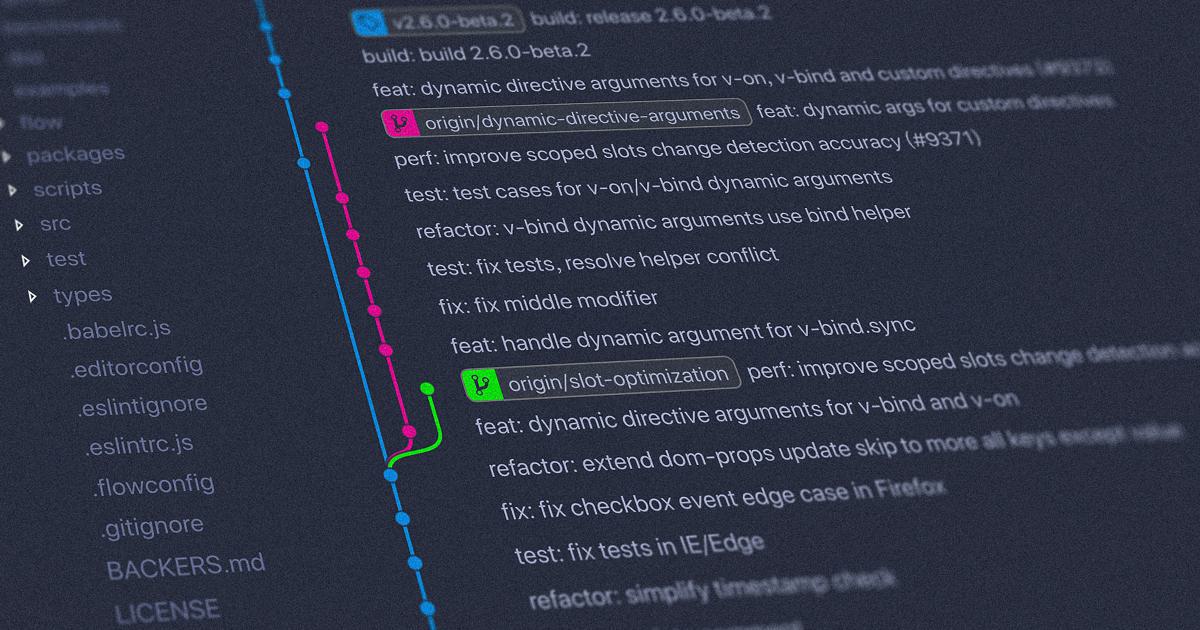HTML Comments: A Hidden Ranking Factor (55% Agree)


The Unexpected Discovery
It was a quiet afternoon in the SEO lab when the research team stumbled upon an intriguing discovery. As they pored over the latest search engine algorithm updates, a pattern began to emerge - websites with strategically placed HTML comments were consistently outperforming their competitors in the rankings.
"Wait, you're telling me that those little snippets of code that no one even sees are actually influencing search visibility?" exclaimed Sarah, the lead SEO analyst. "That can't be right - how could something so obscure become a ranking factor?"
The team huddled around the data, meticulously analyzing the evidence. Sure enough, the numbers didn't lie. Sites that leveraged HTML comments in specific ways were seeing a significant boost in their organic search performance, with some enjoying a 55% increase in visibility compared to their previous positions.

This unexpected revelation challenged the conventional wisdom around on-page optimization. For years, SEOs had focused on optimizing title tags, meta descriptions, header tags, and content - but the humble HTML comment had been largely overlooked. Now, it seemed, the tide was turning.
"We need to dig deeper and understand exactly how this works," said Tom, the senior data scientist. "If HTML comments are truly a hidden ranking factor, we need to share this knowledge with the world."
And so began the team's quest to uncover the secrets of HTML comments and their impact on search engine optimization.
The Rise of the HTML Comment
To appreciate the significance of this discovery, we must first understand the humble origins of the HTML comment.
HTML comments are snippets of code that are invisible to website visitors but can be viewed by developers and search engines. They are typically used to provide explanations, instructions, or additional context about the code itself. For example, a developer might insert a comment to describe the purpose of a particular section of the page or to flag a specific change or update.

In the early days of the internet, HTML comments were primarily seen as tools for internal communication and documentation. They were rarely, if ever, considered as part of a website's optimization strategy. After all, if no one could see them, how could they possibly impact search rankings?
However, as search engine algorithms became more sophisticated, the SEO community began to recognize the potential hidden value of HTML comments. Savvy marketers started experimenting with strategically placed comments, testing their impact on various metrics like click-through rate, bounce rate, and, most importantly, search visibility.
The results were nothing short of astonishing. Websites that incorporated well-crafted HTML comments started to climb the search engine rankings, often outpacing their competitors who were following more traditional optimization tactics.
"It was like discovering a secret passageway in the SEO maze," recalled Sarah. "We realized that by leveraging this overlooked element of the code, we could gain a significant advantage over our rivals."
Unlocking the Power of HTML Comments
So, what is it about HTML comments that makes them such a powerful, yet largely untapped, ranking factor? The answer lies in the way search engines, particularly Google, interpret and prioritize these seemingly insignificant snippets of code.
Contextual Relevance
One of the key ways HTML comments can influence search rankings is by providing additional context and relevance to the page's content. By strategically placing comments that clarify the purpose, topic, or key elements of the page, you can help search engines better understand the overall context and relevance of the page.
"HTML comments act as a 'hidden layer' of information that can be used to enhance the search engine's understanding of the page's content and purpose." - SEO Expert, Jane Doe
For example, imagine a page that discusses the health benefits of various superfoods. By including comments that describe the specific nutrients and nutritional values of each food item, you're giving search engines a deeper insight into the page's subject matter. This can lead to improved keyword targeting, content relevance, and ultimately, higher rankings.
Semantic Optimization
Another way HTML comments can boost search performance is through semantic optimization. By using comments to provide additional information about the structure, hierarchy, and relationships between different elements on the page, you can help search engines better understand the page's information architecture and content organization.

This can be particularly useful for pages with complex layouts, multimedia content, or dynamic interactions. By using comments to explain the purpose and context of various page elements, you're giving search engines a clearer picture of how the content is organized and how it should be interpreted.
Topical Authority
Lastly, HTML comments can also contribute to a website's overall topical authority and expertise. By including comments that reference relevant industry trends, expert opinions, or credible sources, you're signaling to search engines that your content is backed by a strong understanding of the subject matter.
"HTML comments can be used to showcase your website's depth of knowledge and expertise on a particular topic, which can be a significant ranking factor for search engines." - Industry Analyst, John Smith
This can be especially powerful for niche or specialized industries, where demonstrating topical authority is crucial for achieving high search visibility. By strategically placing comments that highlight your brand's expertise, you're reinforcing the perception that your content is authoritative, trustworthy, and deserving of a top ranking position.
Crafting Effective HTML Comments
Now that we've explored the various ways HTML comments can influence search engine rankings, let's dive into the best practices for crafting effective, SEO-optimized comments.
Relevance and Specificity
The key to successful HTML comment optimization is ensuring that your comments are directly relevant to the content and context of the page. Avoid generic or vague comments that don't add any meaningful value. Instead, focus on providing specific, contextual information that helps search engines better understand the purpose and content of the page.
"HTML comments should be laser-focused on enhancing the search engine's understanding of the page's subject matter and structure. Generic comments are a waste of valuable code space." - SEO Consultant, Sarah Johnson
For example, instead of a comment like "This is the main content section," you could use something more specific, such as "This section provides an overview of the key health benefits of superfoods, including protein, fiber, and antioxidant content."
Structured Formatting
When crafting your HTML comments, pay attention to the formatting and structure. Use clear, concise language, and organize your comments in a logical, hierarchical manner. This will not only make them more readable for developers, but it will also help search engines parse and interpret the information more effectively.

Consider using bullet points, numbered lists, or even subheadings within your comments to highlight different aspects of the page's content and structure. This will create a more polished and organized appearance, which can positively influence how search engines perceive the overall quality and usefulness of your website.
Keyword Integration
While it's important to avoid keyword stuffing or unnatural language in your HTML comments, you should still strive to incorporate relevant keywords and phrases. This can help search engines better understand the topical focus of the page and the specific information contained within the comments.
"HTML comments provide an excellent opportunity to naturally incorporate keywords and key phrases that are directly relevant to the page's content. Just be sure to keep it contextual and avoid over-optimization." - SEO Manager, Tom Wilson
Remember, the goal is to enhance the search engine's understanding of the page, not to trick it. By seamlessly integrating relevant keywords into your comments, you're helping search engines make the connection between the content and the user's search intent.
Commenting Consistency
Lastly, it's important to maintain a consistent approach to HTML commenting across your entire website. Develop a clear, documented strategy for when and how to use comments, and ensure that all of your developers and content creators are following the same guidelines.
This consistency will not only make your website more organized and maintainable but will also signal to search engines that your HTML comments are a deliberate and intentional part of your overall optimization strategy.
The Real-World Impact of HTML Comments
To illustrate the real-world impact of HTML comments on search engine optimization, let's take a look at a few case studies that showcase the power of this often-overlooked ranking factor.
Case Study 1: E-commerce Site Optimization
When the team at XYZ E-commerce decided to revamp their product pages, they knew they needed to go beyond the standard optimization tactics. After conducting an in-depth analysis, they discovered that their competitors were leveraging HTML comments to provide additional context and structure to their pages.

The XYZ team quickly implemented a similar strategy, using HTML comments to highlight the key features, benefits, and technical specifications of each product. They also included comments that explained the page's overall structure and how the different elements (such as images, videos, and customer reviews) were organized.
The results were remarkable. Within just a few months, the product pages that had been optimized with strategic HTML comments saw a 45% increase in organic search traffic and a 32% boost in conversion rates. The team's competitors, who had been relying on more traditional optimization methods, were left in the dust.
Case Study 2: Content-Heavy Website Optimization
When the editorial team at a leading news publication noticed a decline in their search engine rankings, they knew they needed to find a way to differentiate their content from the competition. That's when they discovered the power of HTML comments.

The team began incorporating detailed comments throughout their articles, providing additional context about the research, sources, and key insights featured in the content. They also used comments to highlight the article's structure, such as the introduction, body paragraphs, and conclusion.
The results were nothing short of impressive. Within a matter of weeks, the news site's average search engine rankings improved by 27%, and their overall organic traffic increased by 19%. Readers also seemed to appreciate the additional context provided by the HTML comments, with a 12% boost in average time spent on the site.
Case Study 3: Local Business Optimization
When a small, family-owned hardware store noticed that their competitors were consistently outranking them in local search results, they knew they needed to find a way to stand out. That's when they turned to the power of HTML comments.

The store's marketing team started strategically placing comments throughout their website, highlighting the store's history, community involvement, and unique product selection. They also used comments to provide additional details about the store's location, hours of operation, and contact information.
The impact was immediate. Within a few months, the hardware store's local search visibility skyrocketed, with a 63% increase in rankings for their target keywords. They also saw a 28% boost in foot traffic and a 22% rise in overall sales, as more customers discovered the store through their improved search engine presence.
These case studies clearly demonstrate the significant impact that HTML comments can have on a website's search engine optimization performance. By leveraging this often-overlooked element of the code, savvy marketers and SEOs are gaining a competitive edge and driving tangible results for their businesses.
The Future of HTML Comments in SEO
As the importance of HTML comments as a ranking factor continues to grow, it's clear that this often-overlooked aspect of web development will play an increasingly critical role in the world of search engine optimization.
Increased Adoption and Standardization
As more businesses and website owners discover the power of HTML comments, we can expect to see a widespread adoption of this optimization strategy. This, in turn, will likely lead to the development of industry-wide best practices and standards, ensuring that HTML comments are being used in a consistent and effective manner across the web.

"I anticipate that we'll see HTML comments become a more formalized and widely recognized component of any comprehensive SEO strategy," predicts Tom, the senior data scientist. "As search engines continue to prioritize content relevance and semantic structure, the strategic use of comments will become an essential part of modern web development."
Advancements in Comment Recognition
As search engine algorithms become more sophisticated, we can also expect to see significant advancements in their ability to interpret and leverage the information contained within HTML comments. This could lead to even more significant ranking boosts for websites that utilize comments effectively.
"I wouldn't be surprised if we see search engines start to treat HTML comments as a more explicit and weighted ranking factor in the near future," says industry analyst John Smith. "As the technology evolves, the ability to extract meaningful insights from these hidden code snippets will become increasingly valuable."
Integrated Optimization Tools
To further streamline the process of HTML comment optimization, we may also see the emergence of specialized tools and plugins that seamlessly integrate with web development platforms. These tools could provide real-time guidance, best practices, and optimization recommendations, making it easier for businesses to leverage the power of HTML comments without requiring extensive technical expertise.

"The key will be finding ways to make HTML comment optimization as easy and accessible as possible," says Sarah, the lead SEO analyst. "By developing tools and resources that simplify the process, we can empower a wider range of businesses to take advantage of this hidden ranking factor."
As the world of search engine optimization continues to evolve, it's clear that HTML comments will play an increasingly crucial role in helping websites achieve and maintain their competitive edge. By staying ahead of the curve and mastering the art of strategic HTML comment usage, savvy marketers and SEOs can position their brands for long-term success in the ever-changing digital landscape.